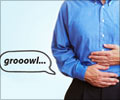A new researched has tied severe hunger to breast cancer risk.

Sixty-five women diagnosed with breast cancer between 2005 and 2010 were compared with 200 controls without breast cancer. All the women lived in Israel. The women with breast cancer were recruited from five medical centers and the controls were members of various organizations for Jewish World War Two survivors.
"The women who took part in our study had all lived under Nazi control for at least six months" explains Dr Neomi Vin-Raviv from the School of Public Health at the University of Haifa, Israel. "We were keen to see what effect restricted calories during this period had on the development of breast cancer and how exposure at an early age, before breast development, affected the potential risk.
"We believe that our findings will be of interest to clinicians treating women involved in any situation such as war and famine, where food is scarce and hunger is severe."
Key findings of the study included:
- Average age at interview was 76.2 years for the women with breast cancer and 78.3 years for the controls. Women with cancer were more likely to be obese and women in the control group were more likely to be overweight. There were no significant differences in smoking status, alcohol consumption, current physical activity and reproductive and gynecological characteristics. Advertisement
- A much higher percentage of the women with breast cancer were seven years old or less at the time of World War Two (49.2%) than the controls (27%). 12% of the women with breast cancer were born during the War, compared with 7.5% of the control group.
- 63% of the women with breast cancer lived under direct Nazi rule, compared with 83.5% of the controls, and the remainder lived in "independent countries" that co-operated with the Nazi regime. Advertisement
- 61.5% of the women with breast cancer experienced severe hunger, compared with 37% of the women without breast cancer. The figures for moderate hunger were 17% and 38% respectively and the figures for mild hunger were 21.5% and 25%.
- The odds of developing breast cancer was five times higher in women with severe hunger than mild hunger. Being aged seven-years-old or less increased the odds by 2.8 times.
"The link between restricted calorie intake and cancer is a complex one" says Dr Vin-Raviv. "Several theories are discussed in our paper, but further research into the biological mechanisms are needed.
"What is clear from our study is that there was a clear association between severe hunger and breast cancer in Jewish survivors and that the women who were seven years old or younger during the War were the most affected group.
"These findings are of relevance not only to World War Two survivors, but to other communities that may be currently exposed to restricted calorie intakes."
Source-Eurekalert














